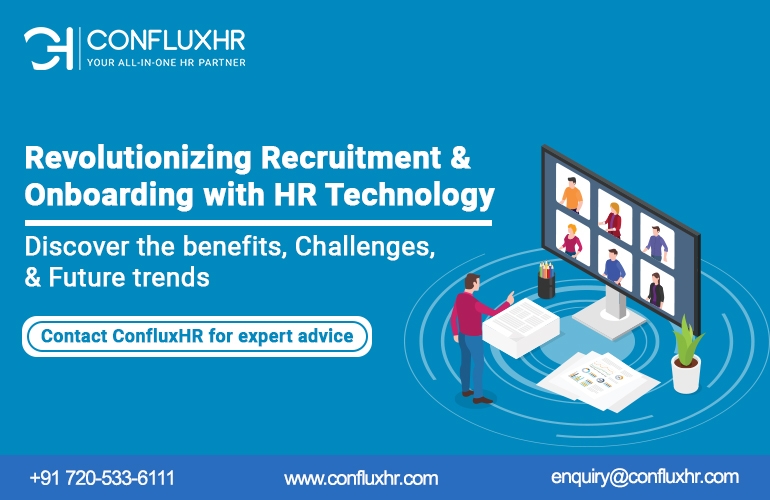Introduction
In today’s competitive business landscape, talent management has become a strategic imperative for organizations. HR technology plays a vital role in driving effective talent management practices.
This blog will explore the significance of HR technology in transforming talent management processes and discuss key areas where technology can make a significant impact.
1. Streamlining Recruitment and Onboarding
Recruitment management software, streamlines the recruitment and onboarding processes, making them more efficient and effective. Automated applicant tracking systems (ATS) help HR teams manage job postings, track candidate applications, and streamline selection processes. Onboarding software ensures a smooth transition for new hires, enabling them to access necessary information, complete paperwork, and get up to speed quickly.
2. Enhancing Performance Management
HR technology enables organizations to improve performance management practices. Performance management software facilitates goal setting, ongoing feedback, performance reviews, and talent development plans. By automating these processes, HR technology ensures consistency, transparency, and fairness in performance evaluations. It also provides managers and employees with real-time performance data and analytics to support decision-making and development initiatives.
3. Driving Learning and Development
HR technology plays a crucial role in supporting learning and development initiatives. Learning management systems (LMS) provide a centralized platform for delivering and tracking training programs, courses, and certifications. These systems enable employees to access learning resources anytime, anywhere, and allow HR teams to monitor training progress, identify skill gaps, and personalize development plans. Additionally, technology-driven tools such as virtual reality (VR) and augmented reality (AR) can enhance the effectiveness of training programs.
4. Enabling Employee Engagement and Collaboration
HR technology fosters employee engagement and collaboration by providing digital communication and knowledge-sharing platforms. Intranets, social collaboration tools, and employee engagement platforms facilitate seamless communication, promote teamwork, and create a sense of belonging among employees. These platforms also enable HR teams to gather feedback, conduct surveys, and measure employee satisfaction, leading to data-driven improvements in engagement strategies.
Supporting Succession Planning and Talent Analytics
HR technology aids succession planning and talent analytics, enabling organizations to identify high-potential employees and develop succession pipelines. Succession planning software helps HR professionals assess talent, identify critical roles, and create development plans for future leaders. Talent analytics tools provide insights into workforce demographics, turnover rates, performance trends, and skill gaps. This data empowers HR teams to make informed decisions, predict future talent needs, and implement strategies to retain and develop top performers.
Conclusion
HR technology revolutionizes talent management. It streamlines recruitment and onboarding, improves performance management, drives learning and development, boosts employee engagement and collaboration, and supports succession planning and talent analytics. Embracing HR technology empowers organizations to attract, retain, and develop top talent, providing a competitive edge in today’s business landscape. By leveraging technology effectively, HR professionals can transform talent management practices and drive organizational success.




